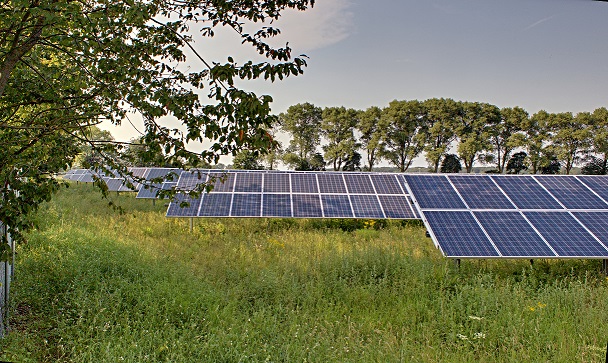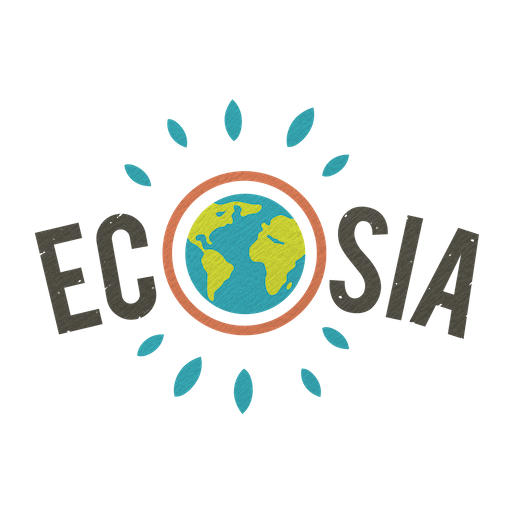Social Business’s Disruptive Potential to Improve the World
Génica Schäfgen from ecosia offers insight into social business, and how an Internet search can fuel the planting of trees.

© lovelyday12 | istockphoto.com
In the digital age, disruptive changes in technology and society have emerged, with these changes happening very fast. Too fast for legislature, education, and politics to adjust in time. This means that it’s up to us, in the technology sector, to find new ways to ensure that we are really creating a better world as we transform society to digital.
The digital space was created by innovative tech companies in Silicon Valley. They created the world we access daily with the help of our technical devices. Because they were the pioneers, they now happen to be the ones leading the way. But how are they leading and where will this path bring us in the future?
Not every business venture needs to be profit driven. Nobel Peace Prize laureate Professor Muhammad Yunus has developed the concept of “Social Business”, which exists in a mid-point between profit-driven and non-profit businesses. Unlike a non-profit, a social business is not dependent on donations – it generates its own income. But unlike a for-profit venture, a social business is established specifically to solve a social problem or provide a social benefit for society.
The need for social business in the digital field
We have learned to depend on the information and services our devices provide: maps, search engines, calendars, emails. They are the interface between us and technology in a world where we are growing to depend on the digital. Considering this close relationship and the sensitivity of data we share with our devices, digital entrepreneurship should be characterized by social responsibility and ethics in the first place. But it’s not. Instead, the interests big players represent are driven mostly by money.
Christian Kroll wanted to change that and created a business model that used established processes to do good. This is why he founded Ecosia in 2009. Ecosia is a free search engine – like Google – and just like Google, Ecosia makes money with ads. The big difference is that Ecosia uses its profits to plant trees. So far, Ecosia has financed the planting of more than 40 million trees worldwide, most of them planted in biodiversity hotspots in the Americas, African countries, and Southeast Asia.

CC0 Pixabay.com
Trees: Versatile superheroes with transformative power
One could ask: why trees? Well, put simply, trees are versatile superheroes, capable of having a hugely beneficial impact on people, animals, and the environment. Planting trees is excellent for the environment. After all, trees are among the most efficient CO2 absorbers on the planet. Trees help mitigate the effects of climate change, they can help restart water cycles, keep deserts from spreading, and turn barren ground back into fertile woods and farmland.
But planting trees also means nourishing communities. Fresh, nutritious forest goods can either be directly consumed by the local communities or sold on the local markets. This improves people’s health and allows them to build their lives in newly revitalized areas, instead of having to migrate in search of better living conditions. Local women and men find dependable employment and earn an income of their own, which helps stabilize political and economic situations. Thanks to their income from the tree planting and farming, parents can afford to send their children back to school, buy medicine, and build houses.
By planting trees, one can help create and maintain a habitat for all kinds of often endangered species, supporting local biodiversity. Trees can also help shape and restore landscapes. With their strong roots, they can stabilize shorelines and mountain slopes.
So, by planting a tree, you can fight climate change, restore landscapes, protect wildlife, provide nutrition, employment, education, medical assistance, and contribute to political as well as economic stability.
A social business model offering Internet users an ethical & CO2 negative alternative
This way, Ecosia gives Internet users the possibility to choose where the vast amounts of money that can be made in the search industry are going. Should profits benefit shareholders or the planet and the life on it?
Ecosia is fully powered by renewable energy. This means it’s not only CO2-neutral, but actually CO2-negative, since searching with Ecosia also facilitates the planting of trees, which in turn sequester CO2 emissions. Ecosia is very transparent with its users. This is why every month, financial reports are published that show in detail how much money Ecosia has been made and how it was spent. To protect the social business and what it stands for in the long term, Ecosia’s founder Christian Kroll decided to give veto rights to the Purpose Foundation, which now can prevent anyone ever taking profits out of Ecosia or selling Ecosia.
Ecological and social responsibility are the drivers for Ecosia and should become the drivers of more players in the digital age. Technology makes it possible to scale environmental protection and fight social issues. Our planet and our society need such initiatives that can operate at scale. This is something that is becoming more and more apparent to users, who then seek and choose socially responsible alternatives.
In the long term, companies need to change their business models in order to keep up with this development. There will be an increased need for social businesses, meaning hybrids between a non-profit and a full-profit business. Unlike NGOs, social businesses can optimize for profits and then use the generated funds to have the biggest positive impact on a good cause.
Génica works for the search engine Ecosia where she is responsible for the German speaking markets. She studied cultural science and later leadership in digital communications.
Please note: The opinions expressed in Industry Insights published by dotmagazine are the author’s own and do not reflect the view of the publisher, eco – Association of the Internet Industry.





